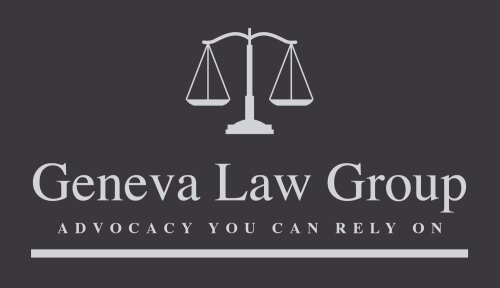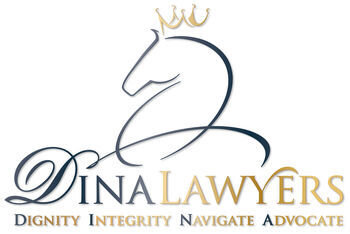Best DUI & DWI Lawyers in Sydney
Share your needs with us, get contacted by law firms.
Free. Takes 2 min.
List of the best lawyers in Sydney, Australia
About DUI & DWI Law in Sydney, Australia
Driving Under the Influence (DUI) and Driving While Intoxicated (DWI) are serious offenses in Sydney, Australia. These terms refer to operating a vehicle while impaired by alcohol or other drugs, including prescription medications. Penalties for DUI and DWI can be severe, ranging from fines and license disqualifications to imprisonment. The legal blood alcohol concentration (BAC) limit in New South Wales (NSW) is 0.05 for fully licensed drivers, but lower for special categories such as learner, provisional, and commercial drivers.
Why You May Need a Lawyer
Engaging a lawyer for a DUI or DWI offense can be crucial due to the complexities involved in such cases. Situations where legal assistance may be required include:
- Challenging the accuracy of breathalyzer or blood test results.
- Navigating plea deals to potentially reduce penalties.
- Understanding the intricacies of ignition interlock programs.
- Addressing potential license suspension or disqualification.
- Mitigating the impact of a conviction on employment prospects.
An experienced lawyer can provide guidance tailored to the specific details of your case, ensuring the best possible outcome.
Local Laws Overview
In Sydney, as part of New South Wales, DUI and DWI falls under the Road Transport Act 2013. Key aspects include:
- Legal Limits: The standard BAC limit is 0.05, but it is zero for learners and provisional drivers, and 0.02 for commercial drivers.
- Random Breath Testing: Police have the authority to conduct random breath testing at any time, anywhere.
- Penalties: Vary based on the level of intoxication, previous offenses, and whether an accident was involved. This can include fines, mandatory alcohol education programs, license suspension, and imprisonment.
- Appeals: Drivers have the right to challenge suspensions and penalties through the legal system.
Frequently Asked Questions
What is the legal BAC limit in Sydney?
The legal BAC limit is 0.05 for most drivers, 0.02 for commercial drivers, and zero for learner and provisional drivers.
What happens if I refuse a breath test?
Refusing to take a breath test is an offense and can result in penalties equivalent to high range prescribed concentration of alcohol offenses.
Can I lose my license immediately after a DUI arrest?
Yes, police have the power to issue an immediate suspension notice in certain circumstances, pending a court hearing.
What are the penalties for a first-time DUI offense?
The penalties can include fines, a period of disqualification, and potential mandatory participation in an alcohol education program.
Can I appeal a license suspension?
Yes, you have the right to appeal a license suspension through the NSW Local Court within 28 days of receiving the suspension notice.
Is it possible to drive after being charged with a DUI?
It depends on whether you've been issued an immediate suspension notice. Otherwise, you can drive until your court date.
What is a work license, and can I apply for one after a DUI?
A work license, or 'restricted license', is not available in NSW. All drivers must comply with the full terms of any disqualification.
Do I need to disclose a DUI on my job application?
This depends on the job and the specific question asked. Legal advice can clarify whether disclosure is necessary.
What is the role of an ignition interlock device?
An ignition interlock device prevents a vehicle from starting if it detects alcohol on the driver's breath. It is often part of penalties for high-range or repeat offenses.
How can a lawyer help if I am guilty?
A lawyer can negotiate sentencing options, present mitigating circumstances, and help reduce penalties significantly.
Additional Resources
- NSW Road Safety: Provides resources and educational programs about road safety and drink driving laws in New South Wales.
- Legal Aid NSW: Offers information and assistance for individuals who require legal advice but may not afford private representation.
- NSW Law Society: Can help you find a qualified lawyer specializing in DUI & DWI cases.
Next Steps
If you find yourself needing legal assistance for a DUI or DWI charge, consider the following steps:
- Research: Gather information on DUI and DWI laws applicable to your case.
- Consultation: Contact a lawyer specializing in these areas to discuss your situation.
- Representation: Decide whether to engage full legal representation based on the advice received.
- Prepare: Work with your lawyer to gather evidence and documentation supporting your case.
- Follow Through: Attend all scheduled court appearances and comply with legal advice.
Engaging with a knowledgeable legal professional can enhance your understanding of the process and provide peace of mind throughout your case.
Lawzana helps you find the best lawyers and law firms in Sydney through a curated and pre-screened list of qualified legal professionals. Our platform offers rankings and detailed profiles of attorneys and law firms, allowing you to compare based on practice areas, including DUI & DWI, experience, and client feedback.
Each profile includes a description of the firm's areas of practice, client reviews, team members and partners, year of establishment, spoken languages, office locations, contact information, social media presence, and any published articles or resources. Most firms on our platform speak English and are experienced in both local and international legal matters.
Get a quote from top-rated law firms in Sydney, Australia — quickly, securely, and without unnecessary hassle.
Disclaimer:
The information provided on this page is for general informational purposes only and does not constitute legal advice. While we strive to ensure the accuracy and relevance of the content, legal information may change over time, and interpretations of the law can vary. You should always consult with a qualified legal professional for advice specific to your situation.
We disclaim all liability for actions taken or not taken based on the content of this page. If you believe any information is incorrect or outdated, please contact us, and we will review and update it where appropriate.















